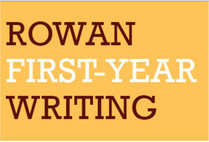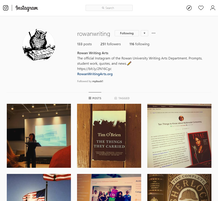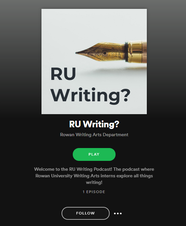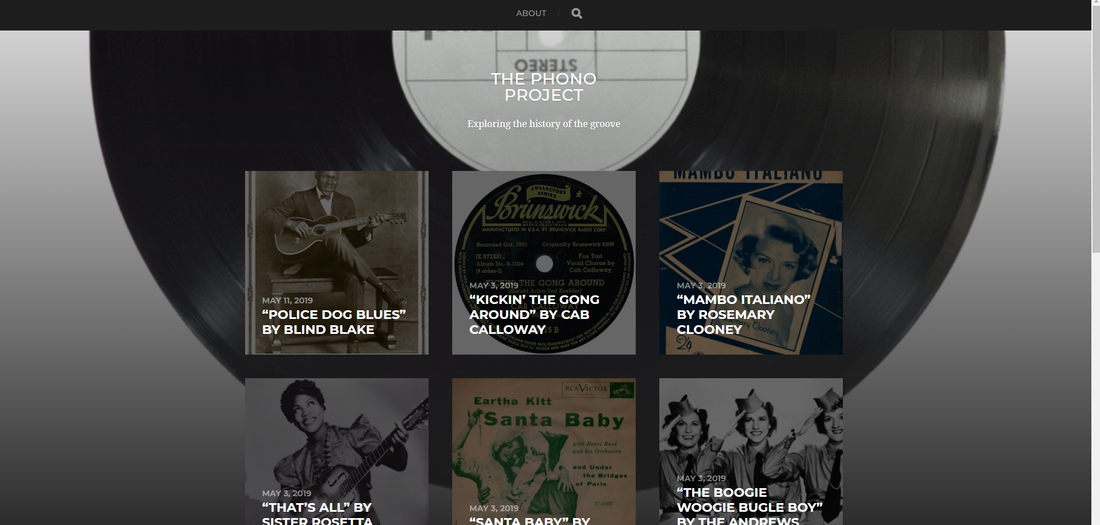|
Communication is created and shared through modes. Modes are ways of meaning-making, manners of expression. The common mode we writers are familiar with is alphanumeric text--words on a page. Yet communication exists beyond the black-and-white, it is visual, audible, spatial, interactive and interconnected. Rachel Shapiro, an assistant professor in the Writing Arts Department, defines multimodality as “the rhetorical (or not) use of multiple modes of meaning making in a single or overlapping compositions, including visual, aural, oral, written, digital and physical elements that can be used in various combinations to achieve a purpose.” Modes can be thought of as tools, each having a specific purpose informed by the context and audience. What are some common examples of multimodal texts? Ads are a well-known form of multimodal text. Ads apply multiple modes: visual, textual, spatial, and depending on the medium, aural. This is usually accomplished through pictures, graphics, and text. Each mode in an ad works to persuade the viewer to purchase a product or service. Social media is another example; users encounter visual, audible, and textual modes online, and use these modes to converse with others. Podcasts communicate information via the audible mode and are becoming increasingly popular. But beyond these common examples, some believe that a monomodal text is impossible. Amanda Haruch, a Writing Arts alumni and current Writing Arts Lecturer, explains that “even one who is writing a traditional academic essay is engaging in multimodal writing—the text on the page, combined with the white space (spatial) and document design.” Thus, encounters with multimodal texts are unavoidable, and they play a central role in the way we communicate today. It is for this reason that students inside and outside the Writing Arts Major should work to understand and produce multimodal texts. How does the Writing Arts Department and Rowan University address this need for multimodal study? Classes offered by the Writing Arts Department address multimodality in multiple ways. Drew Kopp, Associate Professor and Chair of the Writing Arts Department, uses Google Docs in his classes, allowing the students to work in a low-stakes collaborative environment. In Jason Luther’s module for Intro to Writing Arts, students maintain their own blogging website and produce a 90-second podcast which is published to The Phono Project, a digital publication run by Luther. This project enables students to work primarily within the textual and auditory modes, and is one of the first projects Writing Arts students encounter that teaches multimodality. From there, students will encounter multiple modes within their Writing Arts classes. Rachel Shapiro has encouraged her students to produce works in multiple genres such as “digital and print zine making, blogging, microblogging and social media, web design, document design, podcasting, video remix, documentary video, stop motion, infographics and more.” Amanda Haruch has also implemented multiple multimodal genres into her classes, such as “videos (remix and oral history), infographics, blog posts, and multimodal argumentative essays.” Each of these projects allows students to explore, analyze, and produce works in multiple modes; to shift the emphasis from textual arguments and incorporate it in different modes.  One of the best examples of multimodal instruction beyond the Writing Arts Department can be found in the First-Year Writing Program. The First-Year Writing Program (FYW Program) is designed to “foster and strengthen the critical reading and writing skills that students need to succeed at the university and beyond,” enabling students to be “rhetorically adept writers who can respond to a variety of academic, personal, civic, and professional writing situations.” Due to the ever-growing encounters with multimodal texts, there has been a push for students within the FYW Program to encounter and produce multimodal texts. Kristine Lafferty, lecturer in the Writing Arts Department and Assistant Coordinator of the FYW Program, allows her CCI students to produce their final project as an info-graphic, a listicle, or a video. In her CCII class, there are multiple lessons which focus on analyzing multimodal texts. Students then take the techniques they learn and incorporate them into existing essays or analyze an existing multimodal argument. Amy Woodworth, the Coordinator for the FYW Program, also empowers her students with the ability to decide what genre they wish to produce. This decision is based on the student’s audience and how they intend to reach them. The professors I reached out to also described why multimodality is taught to students, and why it is important. First, it is important for students to have the ability to critically engage with a multimodal text and understand the rhetorical devices used within it. Shapiro highlighted this point, stating that crafting in multimodality helps writers “become better and more critical readers of multimodal texts.” Lafferty echoed this point in her response, stating “by teaching them to compose in multimodality, we are also strengthening their ability to analyze multimodal genres.” Every professor I spoke with understood the importance of equipping students with the tools to critically engage with multimodal texts, and each uses their platform as a professor to instill these skills for students who will venture out into our ever-growing multimodal world. Beyond engagement, studying and producing multimodal texts enables students to communicate in new genres and to more audiences. Understanding and applying strategies through multimodal texts, as Lafferty states, equips them with the “tools to communicate effectively in the 21st century,” and these tools will be beneficial to students beyond their years at Rowan University. Multiple professors echoed this point, which is why they all incorporate multimodality in their classes! It’s imperative that all students gain experience analyzing and producing multimodal texts for these reasons. And thanks to these professors, students inside and outside the Writing Arts Department are strengthening the skills they’ll need for our multimodal world and their future careers. The multimodal skills that students will learn will last far beyond their years at Rowan, because of the strides that these professors have taken for their students. Thank you to all the professors who responded to my questions, allowing me to build this essay. Their names are provided below.
Drew Kopp, Associate Professor in Writing Arts here at Rowan and the current Chair of the Writing Arts Department. Jason Luther, third-year Assistant Professor of Writing Arts, who teaches Intro to Writing Arts; Writing, Research, and Technology; Senior Seminar; and Self-Publishing. Rachael Shapiro, assistant professor in the Writing Arts Department. Amanda Haruch,Writing Arts Alumni and current Writing Arts lecturer, lover of new media writing genres. Kristine Lafferty, lecturer in the Writing Arts Department, Assistant Coordinator of the First Year Writing Program. Jude Miller, teacher in the First-Year Writing Sequence. Amy Woodworth, the Coordinator of the First-Year Writing Program.
0 Comments
Leave a Reply. |
Archives
May 2024
Categories |



 RSS Feed
RSS Feed